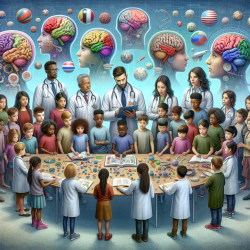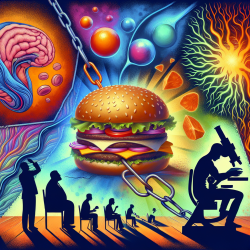The prevalence of mental health conditions among school-age youth is a growing concern, with approximately 20% of children in the United States diagnosed with a mental health condition each year. Conditions such as anxiety, ADHD, and depression are particularly common. The research paper "State of the Evidence for Use of Psychotropic Medications in School-Age Youth" provides valuable insights into the current state of evidence regarding the use of psychotropic medications for managing these conditions. This blog aims to guide practitioners in implementing these findings to enhance their skills and encourage further research.
The Role of Psychotropic Medications
Psychotropic medications are often prescribed to manage mental health concerns in children and adolescents. They are recommended by professional guidelines for conditions like ADHD, anxiety disorders, and depression. However, despite their widespread use, there remains a significant gap in access to appropriate treatment. Factors such as limited availability of clinicians and societal biases contribute to this underutilization.
ADHD Treatment Guidelines
ADHD is one of the most prevalent neurodevelopmental disorders among children. Evidence-based practices emphasize a combination of behavioral interventions and medication management. The Multimodal Treatment Study of ADHD (MTA) highlighted the effectiveness of combined treatment approaches over medication or behavioral therapy alone. Practitioners should consider these findings when developing treatment plans for children with ADHD.
Depression and Anxiety Management
For conditions like Major Depressive Disorder (MDD) and anxiety disorders, cognitive-behavioral therapy (CBT) combined with selective serotonin reuptake inhibitors (SSRIs) has shown efficacy. Practitioners should be aware of the importance of accurate diagnosis and comprehensive assessment practices to tailor treatments effectively.
Implementing Evidence-Based Practices
The implementation of evidence-based practices requires a collaborative approach involving families, schools, and medical teams. Practitioners can enhance their skills by:
- Engaging in interdisciplinary collaboration to optimize treatment plans.
- Staying informed about current research through continuous professional development.
- Utilizing coordinated care models to support medication management.
- Addressing barriers to access and adherence through family education and support.
The Importance of Further Research
The field of pediatric psychopharmacology is continually evolving. Practitioners should be encouraged to engage in further research to address gaps in knowledge and improve treatment outcomes. Areas for future research include:
- The long-term effects of psychotropic medications on child development.
- The impact of socioeconomic and demographic factors on treatment efficacy.
- The development of guidelines that ensure equitable access to mental health care.
Conclusion
The use of psychotropic medications in school-age youth is a complex but essential component of managing mental health conditions. By implementing evidence-based practices and engaging in ongoing research, practitioners can improve their skills and contribute to better outcomes for children and adolescents. For those interested in exploring the original research paper, please follow this link: State of the Evidence for Use of Psychotropic Medications in School-Age Youth.










